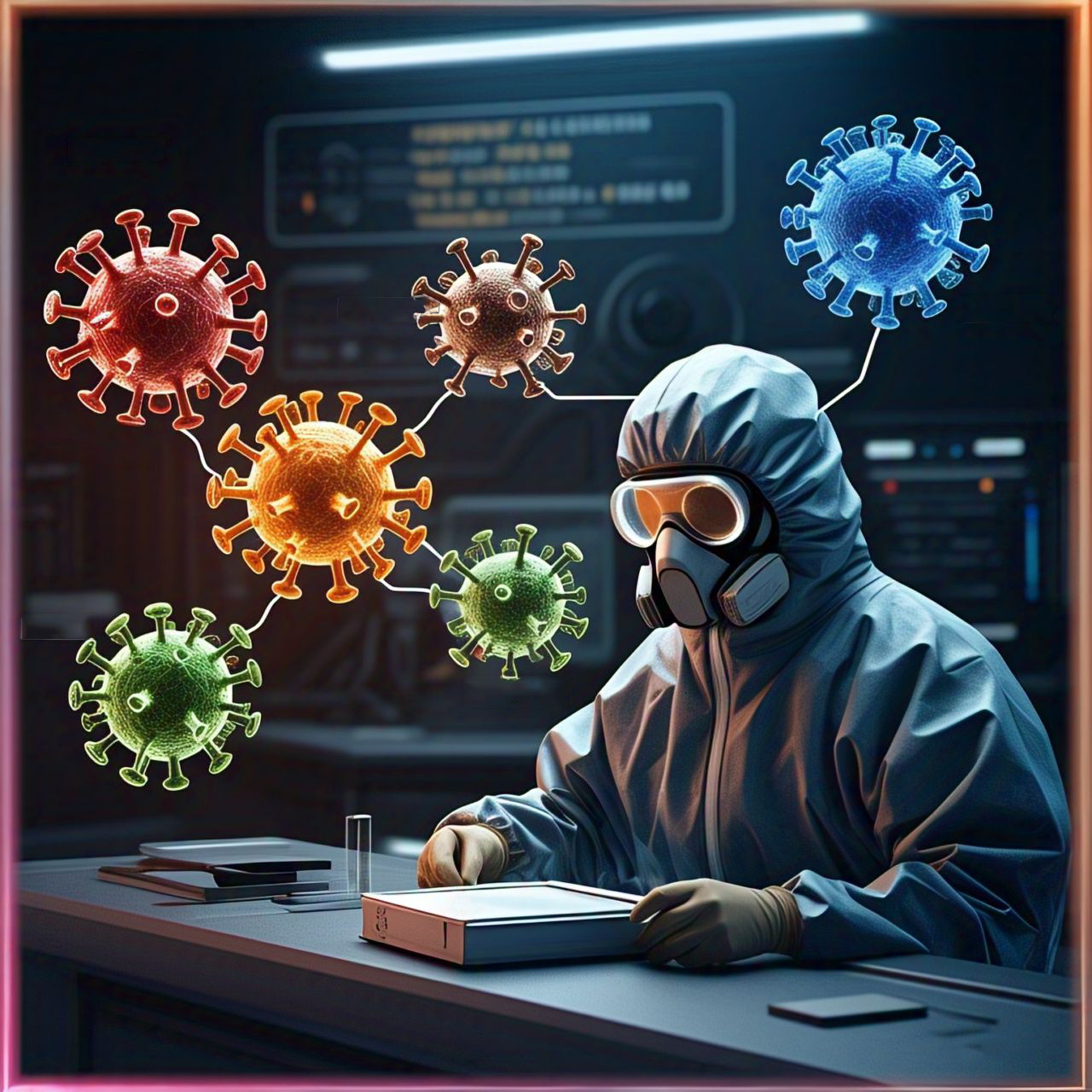AI in Healthcare 2025 is transforming the healthcare industry, offering groundbreaking innovations that enhance patient care, optimize medical procedures, and improve diagnostics. By 2025, AI’s role in healthcare is expected to expand significantly, with advancements in medical imaging, drug discovery, and patient management. This article explores the latest trends, innovations, and real-world case studies demonstrating AI’s impact on healthcare.
The Growth of AI in Healthcare
According to a report by MarketsandMarkets, the AI in healthcare market is projected to reach $67.4 billion by 2027, growing at a CAGR of 41.7% from 2022. This rapid expansion is fueled by increasing investments in AI-driven solutions, the need for efficient healthcare systems, and technological advancements.
Key Innovations in AI for Healthcare
1. AI-Powered Diagnostics
One of the most significant breakthroughs in AI is its ability to enhance diagnostics. AI-driven tools can detect diseases like cancer and neurological disorders with greater accuracy than traditional methods.
Case Study: AI in Cancer Detection
A study published in Nature Medicine (2023) revealed that Google’s DeepMind AI could detect breast cancer 5% more accurately than radiologists, reducing false positives and false negatives significantly.
Additionally, AI-powered radiology solutions like Qure.ai and Zebra Medical Vision have improved early diagnosis rates by over 30%, allowing for faster and more effective treatment.
2. Personalized Medicine
AI enables personalized treatment plans by analyzing patient data, genetic information, and medical history to predict the most effective therapies.
Example: IBM Watson for Oncology
IBM Watson uses AI to recommend personalized cancer treatment plans by analyzing massive amounts of clinical trial data. Studies have shown that Watson’s recommendations align with expert oncologists 93% of the time.
Furthermore, AI platforms like Tempus leverage machine learning to tailor treatment strategies for individual patients, reducing trial-and-error medication approaches and improving outcomes.
3. AI in Drug Discovery
AI accelerates the drug discovery process by identifying potential drug candidates, reducing costs, and speeding up development.
Case Study: AI & COVID-19 Vaccine Development
During the COVID-19 pandemic, AI played a crucial role in vaccine development. BenevolentAI, a UK-based company, used AI to identify Baricitinib, a drug that significantly reduced mortality rates in severe COVID-19 cases.
Additionally, Insilico Medicine used AI to develop a new drug for fibrosis in just 18 months, compared to the traditional 4-6 years.
4. Robotic Surgery & AI-Driven Procedures
Robotic-assisted surgeries are becoming more common due to AI integration. Da Vinci Surgical System, an AI-powered robotic surgeon, has performed over 10 million surgeries globally, increasing precision and reducing recovery times.
Newer AI-powered robotic systems, like Medtronic’s Hugo RAS System, are expanding the use of AI in minimally invasive surgeries, offering real-time guidance and enhanced precision for complex procedures.
5. AI in Healthcare Administration
AI simplifies administrative tasks, including medical billing, patient scheduling, and electronic health records (EHRs). AI chatbots and virtual assistants also improve patient engagement.
For example, Olive AI is automating hospital administrative workflows, reducing paperwork time by 60%, allowing doctors to focus more on patient care.

Latest Trends in AI & Healthcare (2025)
1. AI & Wearable Devices
Wearable devices with AI-driven health monitoring, such as Apple Watch and Fitbit, detect irregular heart rhythms, glucose levels, and stress patterns in real-time.
Impact:
- AI-powered ECG monitoring in smartwatches has helped detect atrial fibrillation, preventing thousands of strokes worldwide.
- WHOOP and Oura Ring use AI-driven data analysis to improve sleep patterns and overall wellness.
2. AI & Mental Health
AI-based mental health apps like Woebot and Wysa provide 24/7 mental health support using chatbot technology and machine learning.
Case Study: AI in Mental Health Therapy
A 2024 study published in JAMA Psychiatry found that AI-powered chatbots reduced symptoms of anxiety and depression by 30% in participants using them consistently over three months.
3. Blockchain & AI for Data Security
Blockchain technology is being integrated with AI to ensure secure patient data sharing, enhancing cybersecurity in healthcare.
Example: AI & Blockchain Partnership
MIT and Mass General Brigham have developed a blockchain-AI hybrid system that allows patients to securely share medical records while maintaining privacy compliance.
Challenges & Ethical Concerns
Despite its benefits, AI in healthcare faces challenges such as:
- Data privacy issues
- Bias in AI algorithms
- Regulatory approvals
- Integration with existing healthcare systems
For instance, a 2023 report by Harvard Medical School revealed that AI diagnostic tools were 20% less accurate for minority populations, highlighting the need for bias-free algorithm development.

Future Outlook: AI in Healthcare Beyond 2025
By 2030, AI is expected to revolutionize telemedicine, remote patient monitoring, and precision medicine, leading to better patient outcomes and cost reductions.
- AI-powered remote patient monitoring will enable real-time chronic disease management.
- Predictive analytics in AI will help hospitals anticipate disease outbreaks and resource needs.
- AI in genome editing will lead to personalized treatments for genetic disorders.
Conclusion
AI in healthcare is advancing rapidly, with innovations in diagnostics, drug discovery, robotic surgery, and personalized treatment. As AI technologies evolve, they will continue to enhance efficiency, reduce medical errors, and improve patient care. Healthcare professionals and policymakers must work together to harness AI’s full potential while addressing ethical concerns.



I precisely wished to thank you so much once more. I’m not certain the things I might have accomplished in the absence of the type of methods revealed by you concerning such subject matter. It has been a troublesome matter in my circumstances, but looking at the professional fashion you dealt with the issue took me to weep over gladness. I am happier for this work and thus hope that you realize what a powerful job your are carrying out educating others with the aid of your blog post. I am certain you have never come across any of us.